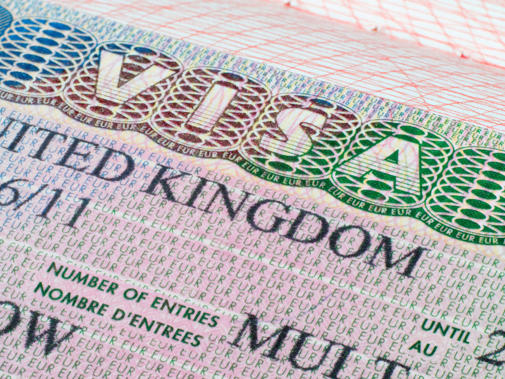For asylum seeker doctors fleeing persecution and arriving in the UK, the path to professional recognition is fraught with challenges, compounded by a hostile asylum system.
In April 2024, an immigration rule change removed doctors from the Shortage Occupation List, stripping asylum seeker doctors of their right to work. Previously, they could apply if their asylum application had been pending for over more than 12 months. With the UK's asylum backlog at around 91,000 by the end of 2024 according to the Migration Observatory and the Home Office making only a third of initial decisions within a year, this change drastically reduced their rights.
Professional identity
It takes immense drive and motivation to become a doctor, and many see caring for patients as a vocation and privilege, an integral part of their identity. Asylum seeker doctors are no different. But they are forced to overcome a myriad of challenges and are often traumatised, and face uncertainty, isolation, and potential discrimination while waiting for their asylum claims to be processed.
It is well known that being permitted the right to work has huge psychological benefits and can help people rebuild their lives, providing them with a sense of purpose and belonging. Depriving them of this chance, risks worsening their mental health, and hinders their ability to rebuild their lives like Dr Ataye, who earned her medical degree in Russia and dreamed of serving her community in Afghanistan.
However, the return of the Taliban made this impossible. Upon arriving in the UK, she applied multiple times to the Home Office for the right to work while awaiting a decision on her asylum application. Despite suffering panic attacks during the waiting period, she was eager to contribute to the NHS. She reflected: 'It is stressful and challenging when you lose your path in life and worry about what’s going to happen, where to go and what to do next. Getting involved in the healthcare system would really help us to contribute and be able to stand on our own feet.’
Since obtaining refugee status, Dr Ataye has worked in a café to financially support herself and is now balancing working as a GP assistant in a surgery and preparing for her PLAB (Professional and Linguistic Assessments Board) exam.
She said: 'I passionately want to contribute to this community and society and specifically help people who come from the same background – who have lived and grown up in a war-torn country.’
Why recruit asylum seeker doctors?
Asylum seeker doctors enrich healthcare services in the UK with their unique perspectives and previous medical experience. Experience which makes them well-suited to serve migrant communities. Having overcome incredible odds to reach the UK, they are resourceful, resilient, and qualified across a range of medical specialties. From an economic perspective, being able to earn a salary, to be able to pay taxes and be self-sufficient by being less reliant on government support is beneficial to all.
Kitty Mohan, chair of the BMA international committee, says: ‘We have an ethical responsibility to do all we can to support doctors who arrive in the UK seeking asylum or refuge from persecution. These individuals have faced incredible challenges and giving them the chance to work is a stepping stone to help them regain their professional identity and contribute their valuable skills to the NHS.’
Reinstate their right to work
Granting them the right to work is a crucial stepping stone to help them reclaim their identity and this is why the BMA has called on the Home Office to permanently reinstate the right to work for all asylum seeker doctors. Due to the recent rise in anti-migrant hate through misinformation, rhetoric and violence, it has never been more important to share accurate information about asylum seeker and refugee doctors, their experiences and the contribution they make to the NHS and wider society.
How the BMA can help
The BMA's refugee doctor initiative supports refugee and asylum-seeking doctors in rebuilding their medical careers, providing assistance, and free membership benefits to help them navigate the UK medical system and regain their professional standing.

